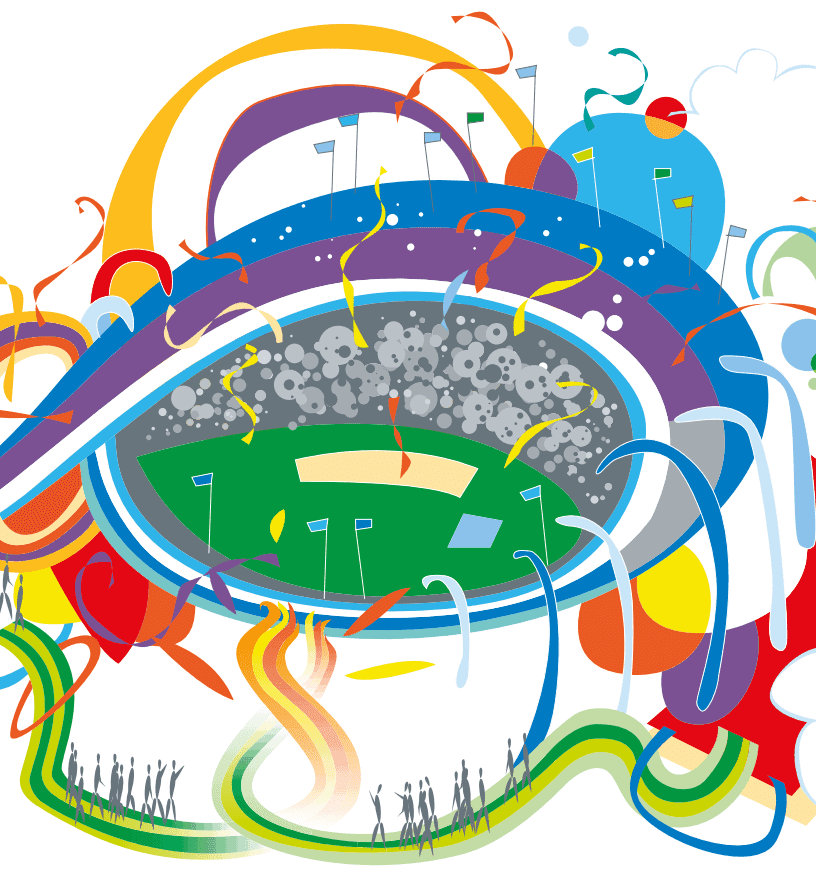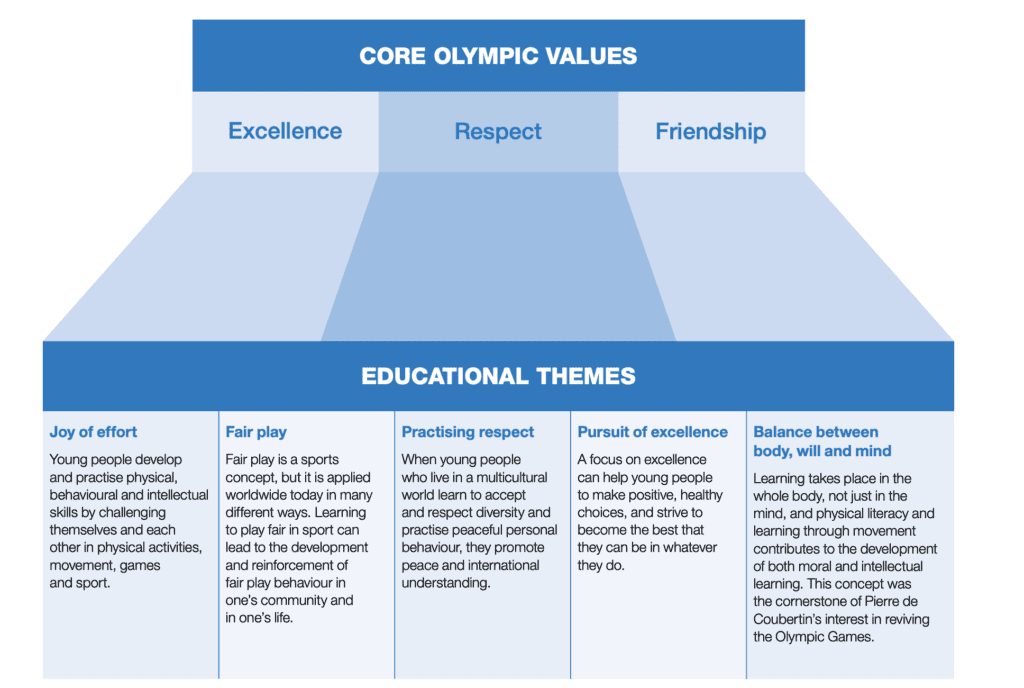
This Olympic Values Education Booklet uses symbols of the Olympic Games, the themes of Olympism, and draws extensively from the lore of the ancient and modern Olympic Games, this curriculum programme aims to disseminate a values-based curriculum that will shape the development of child and youth character. Using the context of Olympic sports, participants are taught skills and strategies that will help them to assume the responsibilities of global citizenship and civic literacy.
Olympic Values

The booklet contains information and material designed to facilitate values-based teaching and learning opportunities. Since the booklet is designed for learners from five to 18 years, often with English as a second language, there are activities for a variety of different age levels and reading abilities. Teachers and youth group leaders are encouraged to adapt and rework activities so that they are appropriate for their learners and athletes. In a world where obesity is a major concern, and where children in deprived communities need hope and a sense of achievement, physical activity and sport have an important role to play. The symbols and ceremonies, sports and cultural events of the Olympic Games are inspiring and motivational. They provide a relevant context for learning and teaching activities, and for promoting sport and physical activity. The educational methods used in the Fundamentals Manual are based on current educational theory about multicultural, intercultural and multiple-intelligence approaches to learning and teaching.
Booklet Overview
- Section 1 explains the purpose of the Manual, introduces the values of the Olympic Movement, and provides suggestions for implementation of the OVEP programme by educators, administrators, youth sport leaders and other members of the Olympic Family.
- Section 2 outlines activities to help learners and athletes understand and explore the symbols and ceremonies of the Olympic Movement.
- Section 3 provides background information and related activities on the history, structure and organisation of the Olympic Games and the Olympic Movement.
- Section 4 includes theoretical background and activities relating to each of the five educational themes of Olympism: joy of effort in sport and physical activity; fair play; respect for others; pursuit of excellence and balance between body, will and mind. These activities will help learners understand these themes and put them into practice.
- Appendix contains a Glossary of terms
Curriculum Booklet
For more information please download the full Olympic Values Education Curriculum via the link below.


Responses